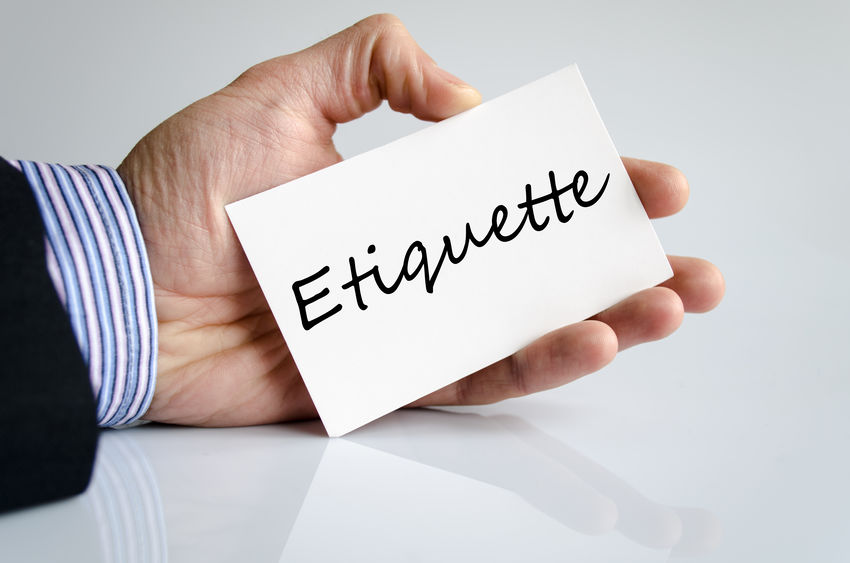From Economics to
Etiquette Education

When I taught high school economics years ago, I wouldn’t have imagined transitioning from being an economics educator to becoming an etiquette educator, coach, and enthusiast many years later. Now I find many connections between the two subjects. Both pertain to understanding and adhering guidelines and rules that shape individual decision making and both offer predictive outcomes.
The discipline of economics primarily focuses on the role of resource scarcity in price determination and the study of production, distribution, and consumption. In economics education, we focus on property rights as the governance structure of economic and social action. Property means that you are free to voluntarily use your body, mind, and things you own as you desire, so long as you respect the same freedom in others.
Etiquette can be viewed as the micro-aspects of the economics of property rights — the concern that individuals operate at the margin in deciding and making choices in social interaction. It is employed by a person in the realm of personal social regulation — so as not to cause hurt feelings, add insult, or embarrassment and social angst. Etiquette is taught as the “how-to” of activating social norms and behavior.
Creating a Culture of Responsiblity and Accountability
Market’s Restraining Principle
In a market economy, the interaction of buyers and sellers ultimately shapes economic outcomes without the need for centralized control or intervention. This restraining principle suggests that the market, through its functional properties, will naturally correct imbalances and ensure efficiency, fairness, and stability in economic exchanges. In markets you have freedom to act voluntarily, restrained only by honoring the same freedom in others. The rule of law discourages cheaters by punishing and deterring their hurtful actions.
Etiquette’s Restraining Principle: Respect
The language of respect varies situationally, contextually, and relationally, but always has a limiting “Do Not” factor. Figuring out the property rights of personal restraint in social and professional interactions with others — the places and times we are not permitted to act without restraint — is one side of what it means to try to live an etiquette-ful life.
Etiquette is More than What Not to Do
When we are etiquette-ful, we are concerned with something more than what not to do. Sharing space, for example, requires not only placing limits on ourselves, but also what to do that signals respectful behavior to others, honoring the idea of personal space/property rights. The guidelines, the “visibles” of how it looks to show up in kindness, mindful of where you are, who you are with, and what is socially acceptable and agreeable are what etiquette is all about.
We want to respectfully show up with others, be our best inclusive selves, and hope to avoid offending or confusing others. These skills are important in getting along with others in our social and professional lives.
Appreciating that We Live in a Market Economy
Economic opportunities, bountiful choices, time to pursue leisure activities are great advantages of living in a market economy. Environments of innovation and creativity are possible and allow individuals to express their individuality and exercise their problem-solving abilities. In market economies people have greater chances for mobility and flexibility in the job market.
Being etiquette-ful impacts relationships and negotiations on personal and company levels. Respect, kindness, and knowing what is in good propriety can help build trust and contribute to positive team and intra-business interactions. Our day to day economic transactions are more pleasant when we are grateful for the often unseen others who are playing their roles in the market economy.
Taking the time to reflect on the past allows us to explore emerging and aligning interests and priorities, which can be seen as a way to show kindness to ourselves. As in my case, going from teaching economics to etiquette education, growing personally and professionally through my experiences with each of them, and finding out just how much the two subjects have in common has been an enjoyable reflection.














